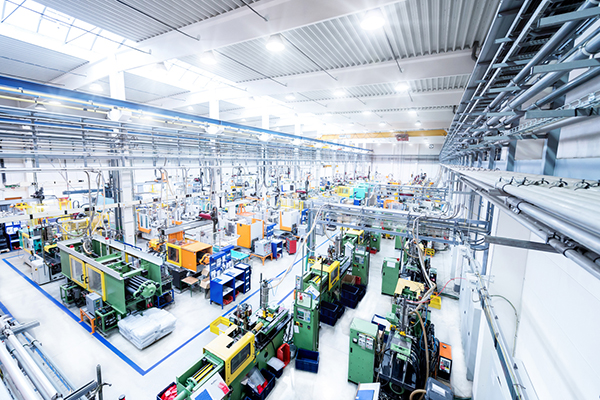WiFi networks are expanding and affect all business processes. They can’t be optimized reliably without the support of automated solutions.
How many devices and business processes depend on the WiFi in your manufacturing facility? Hundreds? Thousands? The global IoT in manufacturing market size is estimated to grow at a compound annual growth rate of 24.70% from 2023 to 2032. These devices represent only one element of WiFi-dependent technologies. If that single market is expected to grow at such a rate, that tells us one thing – WiFi networks always need to be ready to support more. If they crack under the strain, operations can come to a standstill.

This exponential expansion of manufacturing networks requires additional support for IT teams. IT professionals work tirelessly to keep networks optimized and reliable so that operations run smoothly, and users have a positive experience. However, these teams cannot do this work on their own.
Optimizing and maintaining network optimization requires real time, proactive identification of network behavior and performance issues. These issues can occur at any time and can affect everything from single devices to the entire network. They may impact security, communications, finances, manufacturing, or any department that in any way depends on the WiFi.
Identifying issues in real time requires the analysis of the thousands of data packets that are sent every second on the network. Human teams, no matter how large, cannot provide this analysis. Automated WiFi monitoring solutions can. They deliver:
Thanks to these capabilities, Wyebot’s solution reduces resolution times by 90%, problem tickets by 70%, and remote site visits by 80%.
One factor behind the expansion of WiFi networks is that, thankfully, the bottlenecks in the supply chain that existed for the past two years are mainly behind us. This means that new technology adoption can proceed faster. Companies no longer have to wait to transition to WiFi 6E, for example.
However, while supply chains are no longer an obstacle hindering these transitions, that doesn’t mean that there aren’t challenges involved with new technology adoption. Before any change to a WiFi network – including adding new infrastructure, new devices, or new software – IT needs complete visibility into the existing network.
In the case of WiFi 6E, companies need to know:
These questions aren’t unique to WiFi 6E adoption, but they do need to be addressed. Addressing them requires complete visibility into network behavior and performance – both before and after 6E adoption. These questions aren’t idle curiosity. How they are answered affects the operational efficiency of an entire organization. This is why automated WiFi monitoring should be the first technology adopted by any manufacturer, before any other technology changes occur on the network.
If a technology is going to improve user experience, boost operational efficiency, and overall deliver lasting benefit to a company, its adoption should be a straightforward decision. However, this is only realized when companies have performance and behavior analytics that deliver complete real time and historical visibility into the WiFi network. Otherwise, too many questions and mysteries can delay the successful implementation of any technology.
With automated WiFi monitoring, the answers and the visibility are there. Decision makers know not only how to successfully add technologies, but also what technologies will deliver the greatest value and meet network and company needs. For this reason, manufacturing enterprises that utilize automated WiFi monitoring streamline every process that depends on the WiFi. Companies that join them are leading the pack in adopting future-proofed, innovative network technologies.

Roger Sands is the co-founder and CEO of Wyebot, Inc. He has 20+ years of executive management experience under his belt, gained from working with both successful networking startups and Fortune 500 companies, such as the following: Hewlett-Packard’s WW WLAN business, Colubris Networks, Accton Technology, 3com, USRobotics, and Bytex Corporation.
Scott Ellyson, CEO of East West Manufacturing, brings decades of global manufacturing and supply chain leadership to the conversation. In this episode, he shares practical insights on scaling operations, navigating complexity, and building resilient manufacturing networks in an increasingly connected world.